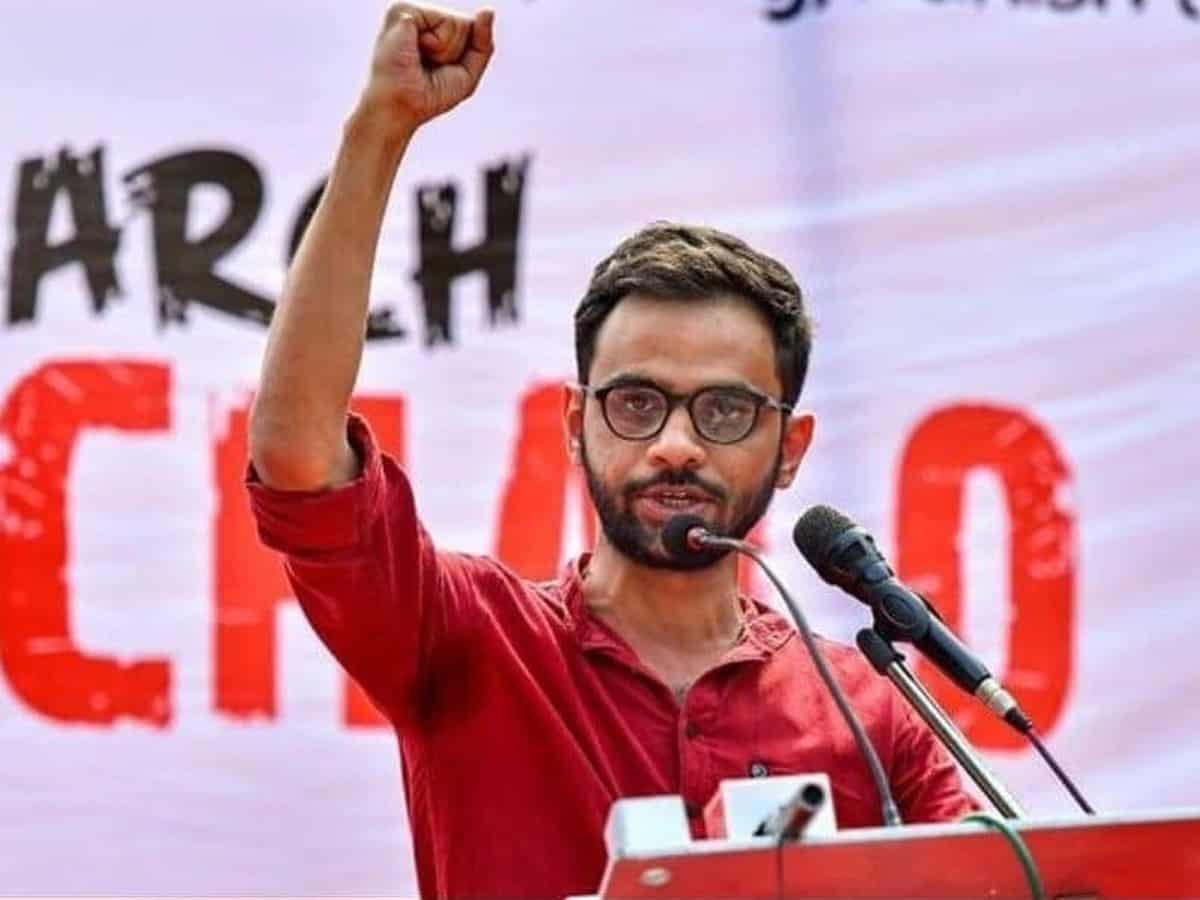
New Delhi: Former JNU student Omar Khalid’s WhatsApp chat revealed that he was in the habit of creating social media narratives to influence bail hearings, the Delhi Police on Wednesday told a court here.
Khalid is an accused in the alleged larger conspiracy behind the 2020 northeast Delhi communal riots. He has been booked under the stringent Unlawful Activities (Prevention) Act (UAPA).
Additional Sessions Judge Sameer Bajpai was hearing the second bail plea of Kahlid before the special court.
Concluding his arguments, Special Public Prosecutor (SPP) Amit Prasad said, “The applicant’s WhatsApp chats also revealed that he is in the habit of creating media and social media narratives at the time of listing of bail applications of persons booked in cases clearly to influence bail hearings.”
“Similar exercise is being adopted while applicant’s bail (hearings) are being listed to influence his bail hearings, samples of posts on X earlier Twitter with hashtag about the applicant are annexed,” Prasad said, adding, the plea deserved to be dismissed in the interest of justice.
He cited the social media posts with the hashtag ‘Free Omar Khalid’ of several people, including Amnesty India, its former director Aakar Patel, activist Teesta Setalvad, Swati Chaturvedi (X handle @bainjal), Kaushik Raj (X handle @kaushikrj6).
Detailing the posts, the SPP said these included a comparison of Ram Rahim’s parole being granted with the Supreme Court allegedly deferring Khalid’s bail 14 times, a post about the denial of Khalid’s bail being an “acute subversion of his rights”, his bail hearing being a “litmus test for the judiciary” and the denial of his bail being a “big blow to the right of peaceful protest”.
“While they (Khalid and others) claim that they were subjected to media trial, please see how he plays around with media, how his father is giving media interviews and people associated with him are also doing the same,” Prasad said.
On Tuesday, the SPP played in the open court a video of Khalid’s father being interviewed by a news portal.
Underlining that the accused’s father told that portal that they did not have faith in the Supreme Court, Prasad said, “They don’t have faith in the Supreme Court and, therefore, they came to the trial court. This is how they are creating a narrative (in his favour).”
He had also named some people and entities with whom Khalid shared links, self-created content and social media posts with a request to share them on their social media accounts to set a particular narrative in his favour and also amplify it.
He referred to some news portals and actors Pooja Bhatt, Zeeshan Ayub, Swara Bhasker, Sushant Singh, Congress leader Jignesh Mewani and activist Yogendra Yadav, the SPP had said.
On Wednesday, Khalid’s counsel, senior advocate Trideep Pais, rebutted the arguments, saying no incriminating evidence was seized from Khalid, and that “on whimsical statements, not even supported by witnesses, terrorist acts are foisted” against him.
He claimed that the Delhi High Court and the special court, both of which had rejected Khalid’s bail pleas, did not distinguish between the alleged offences and the people involved.
“They have just painted everything with a broad brush,” he said, adding the case had to be assessed by looking at “the material qua each individual”.
He objected to the prosecution relying upon call detail records (CDRs), saying it was a “tenuous evidence”.
The counsel questioned the prosecution’s version where they alleged that Khalid had deployed Bangladeshi children and women in the anti-CAA protests.
“Did any woman come out and say this against me?,” he said.
Stressing that the Supreme Court’s view about “prima facie evidence” against an accused had changed, the counsel cited the Supreme Court granting bail to activist Vernon Gonsalves in July 2023 and subsequently to academic- activist Shoma Kanti Sen on April 5 this year in the Elgar Parishad-Maoist links case.
Under the UAPA provisions, the court can deny bail if it thinks that there are reasonable grounds for believing that the accusation against an accused is prima facie true.
Khalid’s counsel said, “One of the witnesses in my case didn’t say anything but then miraculously said something two weeks later. All the witnesses here seem to be taking tablets for memory… Prima facie the case requires depth, not frivolously reading out the chargesheet… A mere meeting of accused individuals does not imply terrorism.”
He also claimed that the prosecution cited “third-party evidence” to link Khalid with terrorist organisations and there was no credible case of a conspiracy to commit offences.
The matter has been posted for further proceedings on April 24.

